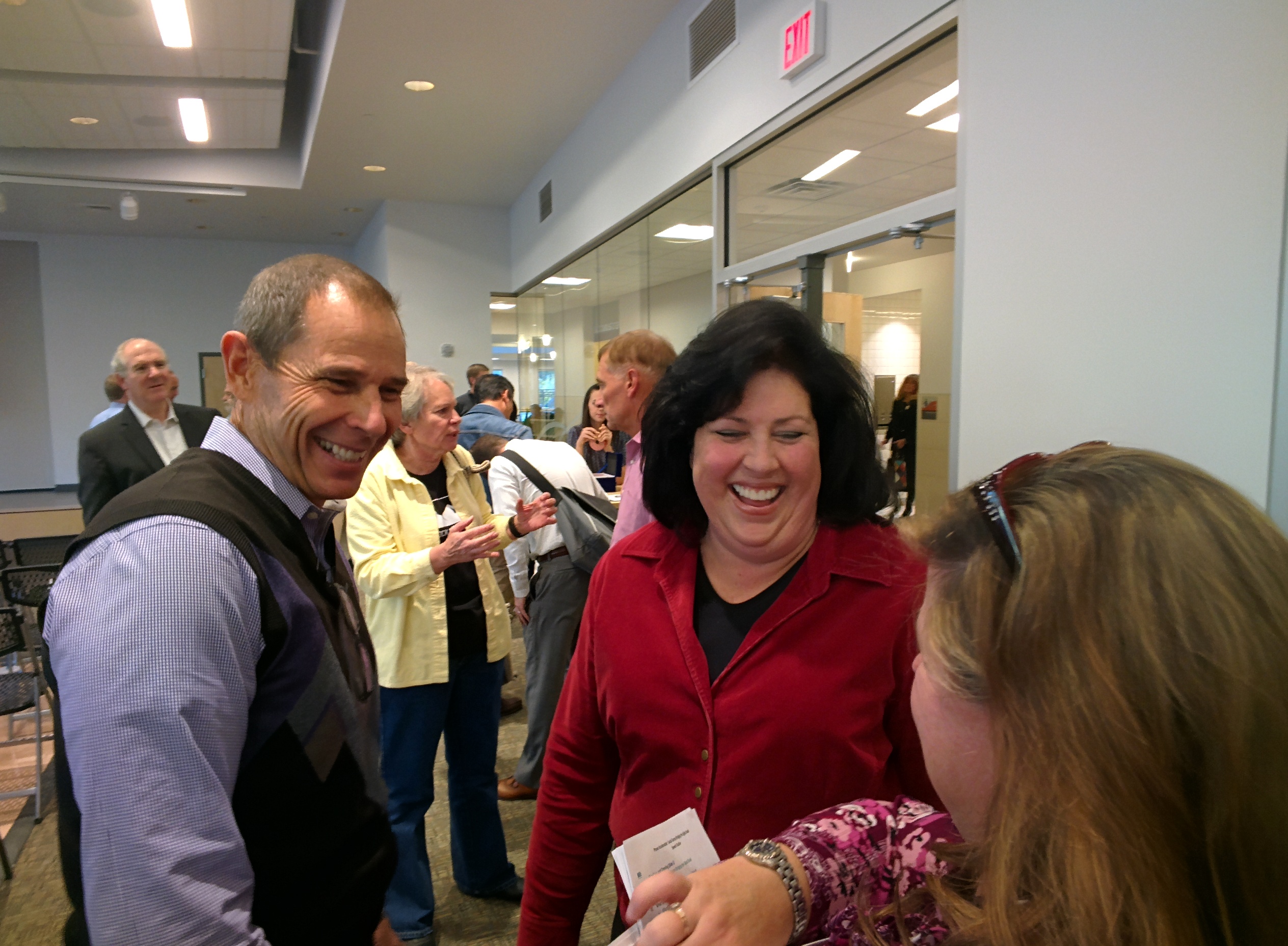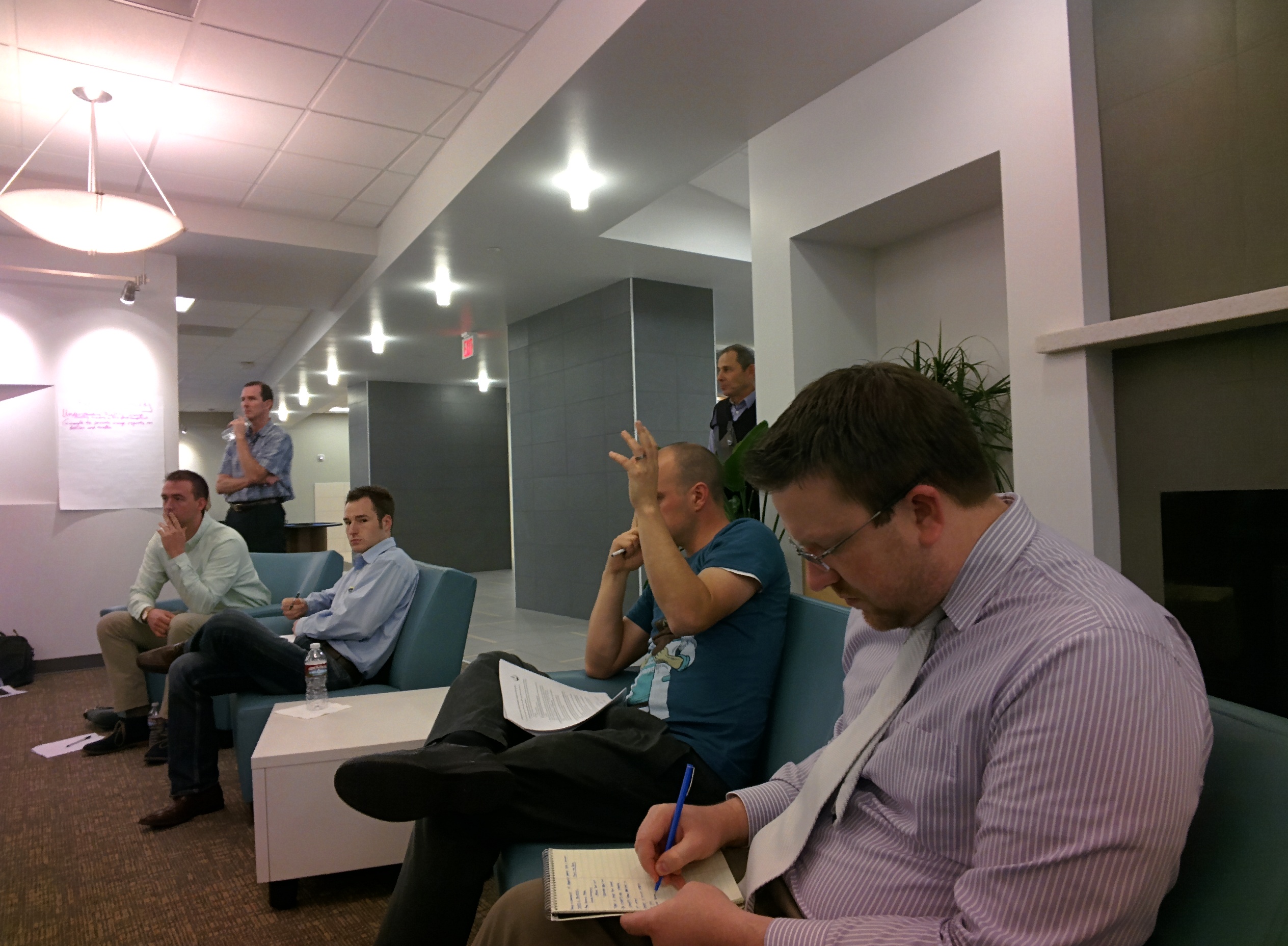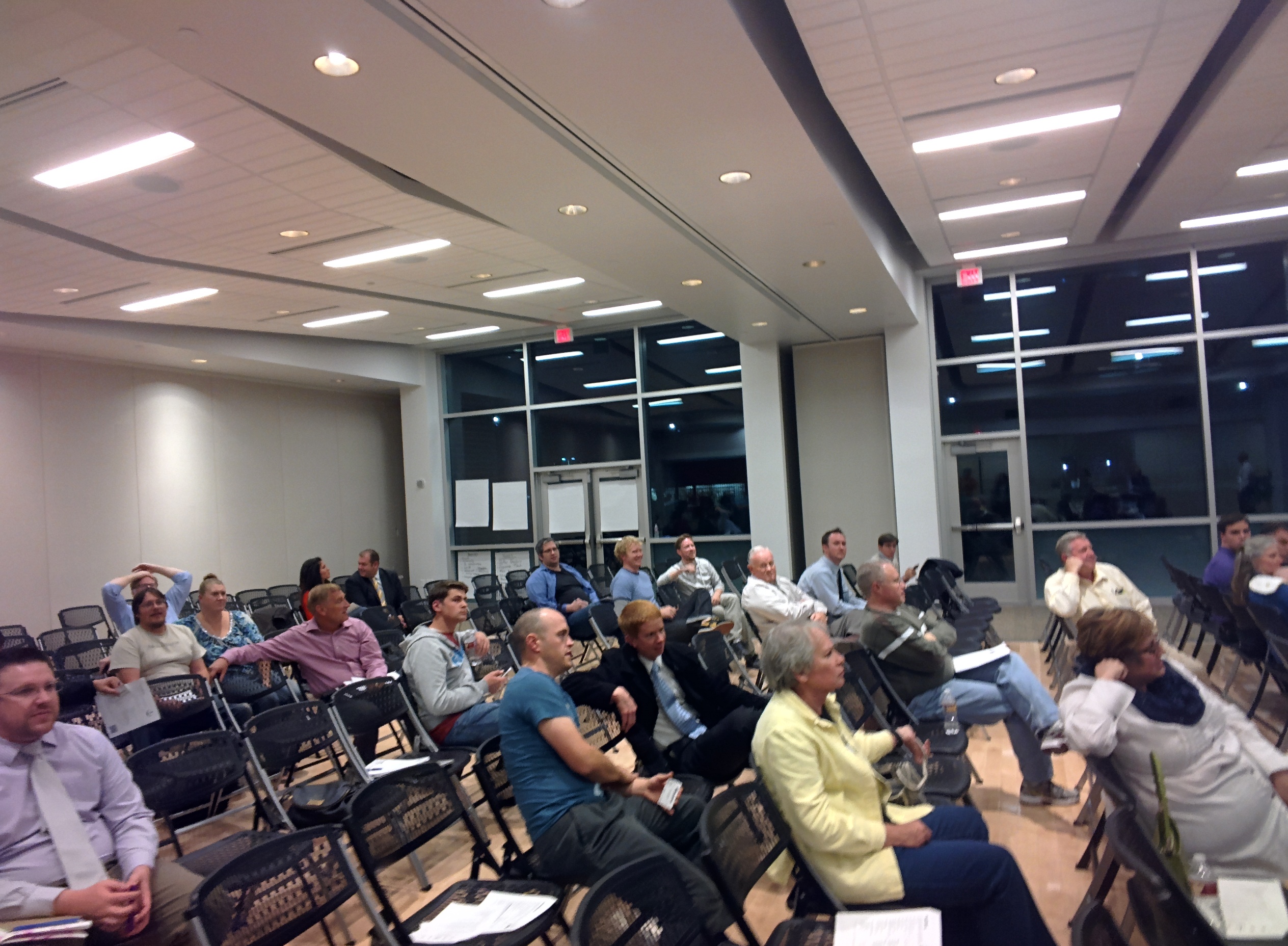Drew Clark: ‘Provo Accelerated’ Kicks Off as Mayor and Citizens Ask What Google Fiber Can Do for City
PROVO, Utah, October 30, 2014 – The conversation was all about Google Fiber, but it was the city mayor, officers and citizens who took center stage at the Provo Recreation Center here on Tuesday night. At the public kick-off of “Provo Accelerated,” a civic effort to tap into the power of Gigabit Ne
PROVO, Utah, October 30, 2014 – The conversation was all about Google Fiber, but it was the city mayor, officers and citizens who took center stage at the Provo Recreation Center here on Tuesday night.
At the public kick-off of “Provo Accelerated,” a civic effort to tap into the power of Gigabit Networks, the talk wasn’t about Gigabit speeds. Mayor John Curtis and the citizens didn’t dwell on the fact that a Gigabit per second equals or 1,000 Megabits per second, roughly 100 times faster than a conventional “high-speed” broadband hookup.Rather, the discussion here centered around five topics: family and community, entrepreneurship, health care, education and a category called social sector/digital inclusion. A range of local and national leaders in each of the areas presented vision statements and goals for the city in each of the areas“Provo will soon likely be the most connected city in America with highest penetration rate of broadband and very high average broadband speeds,” said Wayne Parker, the city’s chief administrative officer. “How do we leverage this amazing asset to accelerate our 2030 vision” to make the community a better place to live and work?, Parker asked the nearly 100 people who came to the event.Provo Accelerated Steering Committee Chair Wayne Parker speaks after the Provo event on Google Fiber.
Parker and Mayor John Curtis referred to a statement that they attributed to Kevin Lo, general manager of Google Fiber, soon after Provo was selected in April 2013 as the third city to receive a Gigabit Network from the search-engine-turned-telecom-provider.
“We knew that if any community could figure out what to do with a Gig, it would be Provo,” said Kevin Lo said, according to the Provo officials.‘What Can Fiber Do for You?’
Unlike Kansas City — the first city to which Google went — and second-city Austin, Texas, in Provo Google acquired an existing city-owned wholesale fiber-optic network. After finalizing the details of the transaction and beginning preliminary network upgrades, Google began offering the service to existing customers in October 2013.The service was launched to new customers in January, and Google has been rolling the service out to residents of the city’s seven “fiberhoods.” Because the network was previously built by the city – and is merely undergoing electronics and other upgrades by Google – Provo is poised to obtain city-wide Gigabit availability faster than anywhere else in the nation.
Tuesday’s event was not so much about the availability of Gigabit Network technology as it was a community kick-off for asking the question: “What Can Fiber Do for You?”This is a Google Fiber presentation displayed at the “Provo Accelerated” Meeting on October 28, 2014
The effort behind this civic convening began in January and February, as Google began its community-wide branding efforts through door-hangers, advertisements on buses, and the launch of two retail outlets/community answer centers.
Curtis, Parker and other city officials visited Kansas City and observed the civic process rolled out by KC Digital Drive, and which has become known as the “Playbook.” Parker said that “Provo Accelerated” was the city’s own “think tank” into the ways that Gigabit Networks can prove most valuable for this university community nestled in the Utah Valley of the Wasatch Front.An preliminary event on February 13 at the Provo City Library featured a video interview with former Obama administration science and technology adviser Susan Crawford. At that event, Crawford presciently said: ‘There is a role for government in fiber networks [and] this will likely start through mayors rather than the federal government, as they see the need and benefits” provided by Gigabit-level connectivity. That event outlined working groups in five topic areas.
The Five Areas
At Tuesday’s public convening, city leaders, together with nationally-known Googlers and technologists, rolled out a series of preliminary concepts in each of the five areas. After presenting the concepts of the five groups to the public session, the meeting attendees broke up into five groups to probe and discuss the matters further.
Health Care
This working group proposed three initiatives: better video-entertainment options in hospitals, partnering with Brigham Young University to provide telehealth access, and a fully-fledged consumer health platform that could enable patients to rate doctors, hospital and clinics.Community and Family
This working group proposed also three initiatives: a resource for families to have meaningful conversations about internet safety, working with Google to develop customizable server-side filtering options, and creating a community-wide portal to connect families and neighborhoods.Social Sector/Digital Inclusion
Four proposals emanated from this working group: helping to establish public Wi-Fi hotspots to boost access; providing greater access to digital devices; teaching digital literacy to low-income, seniors, the homebound, and those with English as a second language; plus building a mobile Provo City App providing easy access to city resources.Entrepreneurship
Given that Provo and the broader Wasatch Front are increasingly seen as one of the nation’s best places to start or run a business, this group proposed outcomes to: create incubating spaces for early stage startup businesses; increasing technological training for local technology companies; and growing the culture of support for Provo businesses, including better integration of BYU and Utah Valley University (based in neighboring Orem) into the local business community. “The culture of Provo is one of learning, opportunity, community and support,” saidSusan Peterson
, a Provo entrepreneur who presented the group’s ambitious. Peterson, whose Freshly Picked company makes childrens’ moccasins and was featured on Shark Tank earlier this year, specifically identified the need for downtown space for business incubation, and the hosting of a venture capital conference for local companies.Education
This working group aimed to offer an array of activities that would promote a culture of innovation in education. “We didn’t just adopt Google Fiber, but we adopted the Google culture of innovation,” said McKay Jensen, the group’s presenter. Because the city, the school board, and the Google Fiber Gigabit Network all align, Jensen said that opportunity for fostering innovation is high. He proposed the creation of an educational innovation center, the launching of Journal of Educational Innovation, and even a “Google-certified teacher” concept, or an educator adept at utilizing the technology of high-bandwidth.This is Google’s promotional video of Google Fiber, with scenes from Provo.
Drew Clark is the Chairman of the Broadband Breakfast Club, the premier Washington forum advancing the conversation around broadband technology and internet policy. He tracks the development of Gigabit Networks, broadband usage, the universal service fund and wireless policy @BroadbandCensus. He is also Of Counsel with the firm of Kirton McConkie, based in Salt City City, Utah. You can find him on LinkedIN, Google+ and Twitter. The articles and posts on BroadbandBreakfast.com and affiliated social media are not legal advice or legal services, do not constitute the creation of an attorney-client privilege, and represent the views of their respective authors. Clark brings experts and practitioners together to advance the benefits provided by broadband: job creation, telemedicine, online learning, public safety, energy, transportation and eGovernment.












Member discussion